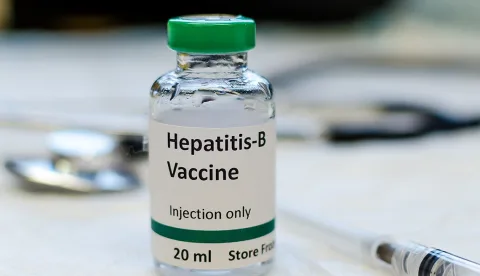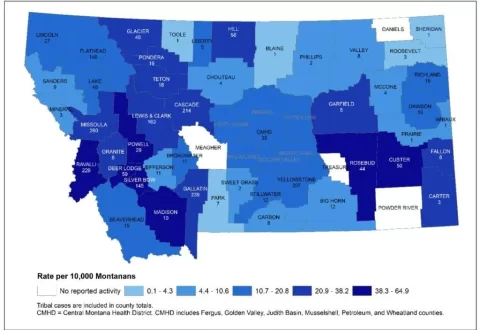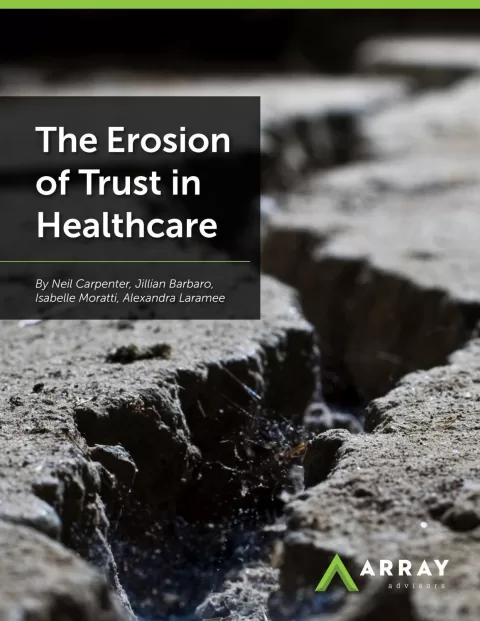The recent **measles outbreak** that has emerged in the United States has raised significant public health concerns, particularly in the northwestern regions of Arizona and Utah, where cases continue to climb. This outbreak, now the second-largest this year with over 120 reported cases, is linked to a close-knit community that has resisted vaccination efforts. Health officials emphasize the importance of timely interventions, reminiscent of global strategies seen during crises like polio vaccination drives and recent health responses to outbreaks such as cholera cases in the Democratic Republic of Congo. As this situation unfolds, it highlights ongoing health risks associated with vaccine hesitancy, underscoring the need for robust public health responses. Understanding the dynamics of this outbreak is crucial as communities navigate the complexities of infectious disease control.
In light of the escalating health concerns surrounding the current **measles outbreak**, it is essential to address the wider implications for public health and community safety. Related issues, such as the urgent need for effective **polio vaccination**, signify a broader trend in which vaccine-preventable diseases resurface due to gaps in immunization. Furthermore, this outbreak echoes the recent challenges faced during foodborne disease incidents like the **Tomato Salmonella outbreak**, where public awareness and rapid response are critical. As these health crises unfold, the intertwining of different disease outbreaks – including increasing **cholera cases in the DRC** – compels a comprehensive public health approach to mitigate risks and protect vulnerable populations. Exploring these topics helps illuminate the pressing health challenges that communities face today.
Measles Outbreak: Understanding the Risk
The recent measles outbreak, now the second-largest in the U.S. this year, highlights a pressing public health concern. With over 120 confirmed cases in northwestern Arizona and southwestern Utah, primarily affecting communities in Colorado City and Hildale, the outbreak underscores the vulnerability of populations that remain unvaccinated. Health officials emphasize that measles is an extremely contagious disease that can lead to severe health complications, particularly in children who are not immunized. Vaccination is the best way to prevent the spread of measles, but access to vaccines must be improved for communities at risk.
Measles outbreaks are not just limited to localized areas; they can have far-reaching implications for public health. In light of this outbreak, the need for robust vaccination campaigns becomes evident, especially in light of recent health statistics showing that immunization rates are falling in various regions. Vaccination not only protects individuals but also helps establish herd immunity, which is essential for community health. As we confront worsening outbreaks like those seen with polio and cholera, a comprehensive public health response, including education about the importance of measles vaccination, becomes crucial.
The Importance of Polio Vaccination Amidst Rising Cases
On World Polio Day, the emergence of new polio cases serves as a stark reminder of the ongoing battle against this debilitating disease. With confirmed infections surfacing in Afghanistan and Papua New Guinea, global health authorities are alarmed, raising the need for renewed focus on polio vaccination. The World Health Organization has highlighted alarming drops in vaccination rates across Europe, where over 450,000 infants remain unprotected. If these trends persist, the resurgence of polio could lead to extensive outbreaks, putting vulnerable children at risk of lifelong paralysis.
Public health response strategies must adapt to combat increasing vaccine hesitancy and misinformation surrounding vaccinations. Comprehensive education campaigns are vital to ensure that parents understand the importance of immunizing their children against polio and other preventable diseases. Countries must collaborate on vaccination initiatives to build stronger health systems capable of addressing and containing outbreaks. Just as measles requires a vigilant response, so does polio; proactive measures, including robust vaccination drives, are essential to preventing a health crisis.
Salmonella Outbreak: Food Safety Concerns
The ongoing international tomato Salmonella outbreak has raised significant food safety concerns as hundreds of cases have been linked to contaminated produce across multiple countries. With 437 confirmed cases spanning 17 European nations from January 2023 to September 2025, public health officials urge consumers to be vigilant. Investigations indicate that Sicilian tomatoes have been identified as the source, similar to findings from previous outbreaks. This highlights the continuous challenge of foodborne pathogens and the importance of stringent food safety regulations to prevent such incidents.
Effective communication regarding food safety is crucial in protecting public health. Retailers and food distributors need to implement better tracking systems to swiftly identify and address sources of contamination. Additionally, consumer education on proper food handling and preparation can mitigate health risks associated with foodborne illnesses like Salmonella. The interconnectedness of our global food supply means that consistent vigilance and preventive measures are necessary not just in Europe but worldwide.
Cholera Crisis: Escalating Health Risks
In the Democratic Republic of the Congo, the cholera outbreak is intensifying, with over 58,000 reported cases leading to nearly 1,700 deaths. The health risks posed by cholera are exacerbated by factors such as flooding, conflict, and inadequate sanitation facilities. As the DRC faces this public health crisis, urgent international support is vital. Lack of access to clean water and proper medical care only fuels the conditions for cholera to spread, creating a toxic environment for widespread disease.
The World Health Organization reports that cholera is also affecting other African nations, prompting calls for a coordinated public health response. Treatment options exist, yet access to medical supplies and vaccines is limited, especially in conflict zones. As the rainy season approaches, the risk of further outbreaks looms large. Solutions require not just medical intervention but also infrastructure improvements and educational campaigns focused on hygiene practices to mitigate cholera’s impact.
Global Health Risks: A Comprehensive Overview
As the world faces increasing health risks from various infectious diseases, it is crucial to understand the interconnectedness of these issues. The recent measles outbreak, polio resurgence, and Salmonella and cholera crises illustrate the complexities of public health. In this global landscape, vaccination remains a cornerstone of disease prevention. The challenges of misinformation and public hesitancy can undermine vaccination efforts, and addressing these barriers is essential for ensuring community immunity.
Moreover, the globalization of trade means that health risks are not confined to national boundaries. Contamination of food products can rapidly lead to international outbreaks, as seen with Salmonella. To combat these global health issues effectively, countries must collaborate on shared health initiatives, including vaccination programs and emergency response protocols. Such a unified approach can help Mitigate health risks and strengthen global public health infrastructure.
Public Health Response: Preparing for Future Outbreaks
The importance of a robust public health response cannot be overstated in the face of ongoing outbreaks and health threats. Recent events have shown that timely intervention, effective communication, and community engagement are essential to successfully manage health crises. Governments and health organizations need to establish quick-response teams that can mobilize resources and implement vaccination drives in affected areas. By learning from past outbreaks and enhancing our preparedness, we can limit the impact of diseases like polio and measles.
Additionally, integrating data analytics into public health responses allows for better tracking of disease trends, enabling proactive measures rather than reactive responses. Investing in public health infrastructure, including sanitation and vaccination programs, must be prioritized to combat issues like cholera and foodborne illnesses. The focus on preventive health measures and rapid response capabilities can significantly reduce morbidity and mortality rates associated with infectious disease outbreaks.
Challenges in Vaccination: Overcoming Hesitancy
One of the key challenges public health officials face today is vaccine hesitancy, which poses significant barriers to achieving high immunization rates. Factors contributing to this hesitancy include misinformation, cultural beliefs, and fear of side effects. Addressing these concerns is crucial to increasing vaccination coverage and protecting communities from preventable diseases such as measles and polio. Engaging with communities through educational outreach and building trust in health services can foster greater acceptance of vaccines.
Moreover, public health strategies should emphasize transparency when communicating the efficacy and safety of vaccines. Utilizing social media campaigns, partnering with community leaders, and providing accessible resources are viable approaches to disseminate accurate information. Combating vaccine misinformation not only improves public perception but also encourages individuals to take responsibility for their health and the health of their communities.
The Role of Education in Public Health
Education plays a critical role in shaping public health outcomes, particularly in disease prevention. Campaigns focused on the importance of vaccinations can lead to increased rates of immunization and the overall health of the population. Schools, media, and community organizations should collaborate to create engaging platforms that inform the public about health risks and preventive measures. This proactive engagement fosters a culture of health awareness and responsibility.
In addition to traditional health education, integrating scientific literacy into school curricula can empower future generations to make informed health choices. Understanding the principles of vaccination, the risks associated with infectious diseases, and the importance of hygiene practices will enable individuals to contribute positively to community health initiatives. Such comprehensive educational approaches will ensure that the population is better prepared to handle health challenges, from routine outbreaks to unforeseen crises.
The Future of Global Health: Strategic Collaborations
As global health challenges become increasingly complex and intertwined, international cooperation is more important than ever. Collaborative efforts between countries, health organizations, and non-profits can create a more unified front in combating infectious diseases like measles, polio, and cholera. Establishing shared goals and strategies for vaccination, outbreak response, and education can help nations effectively manage health risks and improve outcomes for populations around the world.
Investing in global health infrastructure, research, and technology will be crucial for addressing future health crises. This necessitates a commitment from both developed and developing nations to prioritize public health initiatives. A global approach not only ensures a more equitable distribution of resources and knowledge but also strengthens the overall health security of all countries, enabling rapid responses to emergent health threats.
Frequently Asked Questions
What is the current status of the Measles outbreak in Arizona and Utah?
The Measles outbreak in northwestern Arizona and southwestern Utah has surpassed 120 cases, primarily linked to a close-knit community in Colorado City, Arizona, and Hildale, Utah. Notably, there have been 80 cases in Arizona and 44 in Utah, with additional cases reported in larger nearby towns.
How does the recent Measles outbreak relate to public health responses in the U.S.?
The recent Measles outbreak has prompted a renewed call for vaccinations as a crucial public health response. Health authorities emphasize the importance of immunization, particularly in communities with low vaccination rates, to mitigate the health risks associated with such outbreaks.
What are the health risks posed by the Measles outbreak in the context of other infectious diseases?
The Measles outbreak poses significant health risks, especially in unvaccinated populations. These risks are compounded by the emergence of other infectious diseases, such as outbreaks of polio and cholera, which highlight the need for comprehensive vaccination strategies.
What precautions should be taken amidst the ongoing Measles outbreak?
To protect against the Measles outbreak, health officials recommend ensuring that individuals, especially children, are up to date with their vaccinations. Public health responses may also include community awareness campaigns, providing access to vaccinations, and monitoring for new cases.
How does the Measles outbreak compare to polio vaccination efforts in the U.S.?
The Measles outbreak highlights the importance of vaccination, similar to ongoing polio vaccination efforts. The World Health Organization has raised concerns about low polio vaccination rates in Europe, reinforcing the critical role of immunization in preventing outbreaks of both viruses.
Is there a connection between the Measles outbreak and international health responses?
Yes, the Measles outbreak in the U.S. underscores the connection between local public health responses and global health initiatives. As infections rise, it calls for international cooperation in vaccination and disease surveillance to prevent widespread outbreaks.
What lessons can be learned from the current Measles outbreak for future disease prevention strategies?
The Measles outbreak teaches us the necessity of maintaining high vaccination coverage, the importance of public health readiness, and responsive strategies, especially in light of other outbreaks, such as polio and cholera, which require vigilant public health responses.
How are health authorities addressing the Measles outbreak in relation to other diseases?
Health authorities are addressing the Measles outbreak by strengthening vaccination campaigns, enhancing public education about the importance of immunization, and coordinating with global health organizations to ensure comprehensive responses that also tackle diseases like polio and cholera.
| Key Point | Details |
|---|---|
| Measles Outbreak | Over 120 cases reported in Arizona and Utah, linked to a community in Colorado City, AZ and Hildale, UT. |
| Polio Vaccination Rates | WHO warns that vaccination rates are at the lowest since 2017 in Europe, leaving many infants unprotected. |
| Salmonella Outbreak | 437 cases reported across 17 European countries, with Italy, Germany, and Austria being notably affected due to contaminated tomatoes. |
| Recommendations | Public health measures needed to address outbreaks, including vaccinations, testing, and contact tracing. |
Summary
The recent Measles Outbreak highlights the urgent need for public health interventions in the U.S., particularly in areas affected by rising case numbers. With over 120 confirmed cases primarily linked to specific communities in Arizona and Utah, health authorities are stressing the importance of vaccination and increased awareness to prevent further spread. As measles can lead to severe health complications, timely immunization and community education become essential in controlling this outbreak.
The content provided on this blog (e.g., symptom descriptions, health tips, or general advice) is for informational purposes only and is not a substitute for professional medical advice, diagnosis, or treatment. Always seek the guidance of your physician or other qualified healthcare provider with any questions you may have regarding a medical condition. Never disregard professional medical advice or delay seeking it because of something you have read on this website. If you believe you may have a medical emergency, call your doctor or emergency services immediately. Reliance on any information provided by this blog is solely at your own risk.







